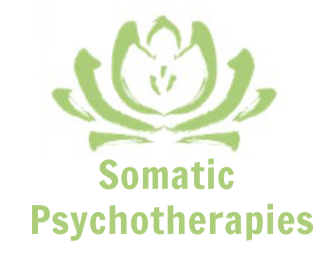How Does Therapy Help?

Depending on your present situation and your reasons for seeking help, there are many benefits to therapy. If you are seeking ‘diagnosis’ to make sense of what you have been experiencing or support for a mental health struggle, therapy can help you better manage your symptoms and triggers. It can also offer you increased coping skills and open your eyes to new ways of dealing with situations that you may not have been aware of before. Therapy can offer problem-solving skills to find solutions, provide support, experience healing from past emotional scars and help you work through life changes, allowing you to see your circumstances as a personal growth opportunity, instead of a burden or obstacle.
I am trained in many methods of therapy approaches including somatic based therapies, pranayama breath work techniques and trauma informed yoga (based on the Yin, Restorative and Nidra styles). I can also teach many various emotional regulation skills where this may be of benefit for you too.
Some Specific Skills Therapy Can Provide Are:
- Emotional management, including, but not limited to anger, jealousy, grief, and depression
- Coping mechanisms to allow you to work through situations which typically cause you anxiety, fear, or avoidance
- Stress-management techniques to apply to deal with stress within your everyday life, such as with your job and friends or family
- Skills and techniques to help you better navigate relationships, or to work through relationship troubles
- Problem solving skills for you to enact when you encounter issues which may typically have caused you to shy away or back down, such as social situations or public speaking
- Improving self-love, self-confidence, and body image
- Improving communication, listening, and the ability to speak up for yourself with assertiveness skills
- Understanding your own existing skills, strengths, and positive attributes and learning to quiet your inner negative critique through self-compassion
- Finding a resolution to the issues that originally led you to therapy, such as having panic attacks, or being unable to sleep.
While the decision to begin therapy is an individual choice, in many regards it can be helpful for every person at some point in their life. There are a wide variety of reasons to begin therapy – ranging from a diagnosed mental health issue, to help managing daily stress, or a transitional period of your life. It is your therapy plan and it will vary based on your individual circumstances.
What To Expect In Your First Appointment?
Your first therapy session has two main goals:

1. Assess your circumstances
We will take the first session to assess your current circumstances which includes parts of your life history, so I will ask a range of questions to get to know you better. If you have significant complexity or just feel more comfortable providing greater detail, then occasionally the assessment can take more than one session. While my areas of expertise may be consistent with your reasons for coming to therapy, we will need to address specific areas that are unique to you, and your current circumstances. So it’s important that I also learn some information about your past experiences, as they can often impact how you are managing things now – even if you are not currently aware of it. We then set some goals of therapy – which is essentially what you would like to have personally achieved by the end of you attending therapy with Somatic Psychotherapies. From there, we will be able to better determine what type of therapy is right for you, what it will entail, and what it will look like for you in terms of fitting it into your day-to-day life.
In addition, over the course of your therapy I may provide you with specific skills to do outside of our therapy sessions, such as practice a certain technique, as it is important you take on an active role in your healing journey. This is so that you have my support to trouble shoot any difficulties you may experience in making your desired changes along the way, as well as once your therapy journey is completed – so you can feel confident in continuing your journey independently.
If you are choosing to participate in a Trauma Informed Yoga therapy course, then we will discuss your past experiences with yoga if any, any potential triggers that may arise for you and how we will manage them within sessions, including any physical or health issues that may impact your participation. Importantly, we will discuss what your current needs and goals are and what items are needed to participate in your environment, so that we can select the best course option for you to prepare to get started with.
2. Build a relationship
Our first session will be more like a two way interview. I’ll get to know you, and you’ll get to know me which will help you to decide if you feel comfortable to continue with therapy at Somatic Psychotherapies. I ask you questions to help me better understand your primary issues and concerns, as well as your history in terms of other events in your life, family, childhood, and career. However, you are welcome to ask questions too. In order for therapy to be successful, it is imperative we establish a client/therapist relationship that is supportive and honest. In fact, research has revealed it is most often the nature – and the quality – of our relationship that will determine the success of your overall therapy goals. The success of the ‘meeting of the minds’ with your therapist is the most accurate predictor of a positive, healthy outcome to the hard work you put in towards your happiness. As such, each client/therapist relationship will be unique, but certain values and themes are true for all sessions, and you can expect the following from Somatic Psychotherapies:
- You can expect to be treated with compassion, empathy, respect, and understanding
- You can expect to be present with a therapist who is available to listen to you and listen to your interpretation of what you are currently experiencing
- You can expect to receive knowledgeable and scientifically backed techniques and information to assist you in overcoming your mental health related struggles
- You can expect to be heard in a safe, supportive, and confidential space
- You can expect to receive real strategies and techniques you can use to enact positive changes on your life.
 Is Therapy Confidential?
Is Therapy Confidential?
As a general rule, all therapy sessions are confidential and anything you discuss with your therapist will remain between the two of you, unless you request otherwise. This is as per protection rules by law and due to therapists holding membership with a professional body (such as myself), which all therapists need to follow. No information from therapy sessions can be disclosed without prior consent from the client, unless required under law.
There are exceptions however – the therapist may disclose only directly relevant information to an appropriate organisation or person (such as your doctor or police) in the following circumstances:
- If there is a serious concern for your safety, or reasonable ground to assume that you may pose a threat to yourself, to your own health or life, or you are proposing harm to another person, their life, health, or property.
- If there are concerns around child safety and protection which requires notification to an appropriate organisation for any further support as assessed by them. I am required to notify an appropriate person or organisation in order to safeguard that risk as identified during a session.
If possible, any safety concerns would be discussed with you at that time, before any disclosure being reported (unless this is not possible) since the primary goal is to provide support and maintain safety, thus avoiding harm before it occurs.
However, if the safety concern is raised between sessions, in the first instance I will attempt to contact you directly to assess your situation. If I am not able to make contact with you directly in a short timeframe, I am required to make contact with a suitable person with your safety and emotional welfare as my priority, and commitment to you.
Counselling confidentiality is waived in the event of police warrant, or court subpoena.
Also, as part of belonging to a professional body, therapists are required to attend regular supervision sessions to specifically discuss how we are working with clients. This is to ensure ongoing professional development through the maintenance of working within ethical and best practice standards. However, any client information discussed is done so in a non-identifying way to ensure client confidentiality.
Somatic Psychotherapies strictly prohibits recording or distributing of any materials or correspondence, including voice and text messages, emails, images, or videos relating to any part of confidential client/counsellor sessions. Unauthorised recording, copying, or distributing of confidential client/ counsellor sessions is a criminal offence in Australia.
If you have any additional questions about the services I offer at Somatic Psychotherapies, you may find the answers within my Frequent Q&A, or feel free to Contact Me Now to enquire. If you are ready to get started, then feel free to book directly via my Client Booking Portal. I look forward to getting to know you and helping you reach your therapy goals.

“Never underestimate the power you have to take your life in a new direction.”
– GERMANY KENT


 Is Therapy Confidential?
Is Therapy Confidential?